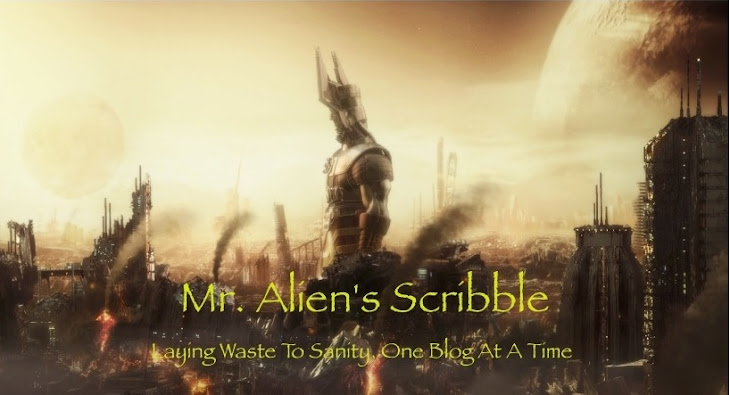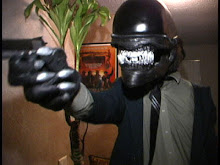You weren’t there; you couldn’t know what it was like, at that moment, to be part of something spectacular.
I’m sure this phrase has been said many times over the centuries, by people who were witness or apart of something memorable, at least for them, and that experience could not be repeated for anyone else. Those who had the abysmal fortune to miss out on the experience are somehow lesser for it, and can never truly know what great, miraculous event they missed out on.
There are specific examples one could point too, but for the gaming community, to which I call myself a member, the Fallout event would be held in high esteem as an embodiment of a perfect moment in time, when someone playing the game realized “this, this is the thing, the great thing, and never again will I experience anything like it”. It was momentous; it was our Rolling Stones at Madison Square Garden in the 70’s. The boot up, the loading screen, the Ink Spots with their iconic song “Maybe”, and Ron Perlman’s profound, legendary statement:
“War, War Never Changes”.
Did we know then? Did we realize, truly see, that this game was a benchmark, something that would be talked about and brought to the discussion time and time again as a historical chapter? Probably not, we just saw it as a fantastic game, something with weeks worth of replay, deep customization of the character, and black humor of a world after the fall peppered with radioactive ghouls and an inspired use of retro futurism.
I bring up this topic because the time is fast approaching when Bethesda Softworks, creators of The Elder Scroll series of games, will unveil the third installment of the Fallout series to a slavering gaming public that cannot get enough information, screens, movies, and demos to satisfy their ravenous hunger for the return of the king. For those that weren’t there, that didn’t see the beginning, Fallout was a game created in 1997 by Interplay, a software company that has since become defunct. Technically still a software company in the same way that Doritos is technically still a food; both are on the books as what they clam to be, but provide you with nothing of value or nutrients. Before Interplay went tits up, they were kings of the gaming community producing such memorable games as The Bard’s Tale and, under their Black Isle Studios division, Baldur’s Gate and Icewind Dale. Fallout emerged on the scene to tell the story of a post atomic California, eighty-four years after the world ended in atomic fire. Using a mixture of 1950’s sci-fi pulp comics, pop culture, black humor and sharp writing, Fallout created a world populated by Super Mutants and cannibalistic raiders pitted against regular, if slightly irradiated, people and the firearms they were packing. Into this emerges The Vault Dweller, a hard luck hero sent out from Vault 13, one of 122 underground cities meant to house survivors to wait out the nuclear fallout and resettle the world. Vault 13 has remained sealed away for all this time, and only sends out one of their own to replace a damaged water purification chip (complete with vacuum tubes for transistors). What follows is a turn based RPG changing your naïve and inexperienced hero into either a paragon of justice or a vicious beserking killer, your choice based on a myriad of available options on how you want to interact with the world.
Interplay followed up with Fallout 2, Fallout Tactics, and Bankruptcy, and the series fell into silence. Bethesda Softworks bought the Fallout IP and went to forging the third game, and held in their keyboard bruised fingers the hopes and dreams of vigilant fans who have breathed desperate air into the slowly dying Fallout fire for years. With the new gameplay crafted on top next generation systems the fans wait, pensive and poised, ready to pour forth adulation at the brilliance of Bethesda’s craftsmanship or bitter vituperation at the treachery of broken dreams, turning a beloved idea into common drudgery. I subscribe to the former possibility.
Reading thus far, you, my faceless, voiceless, but possibly sexy and gorgeous female reader, may wish to partake of the refreshing pool of Fallout’s rejuvenating gameplay, and I whole-heartedly urge you too, but no matter how much you may regard the game in positive light, you cannot join the club. Like those that watched KISS perform live for the first time, or heard Robert Plant belt out those engaging lyrics, those that played Fallout in 97’ hold tight the memories of destroying the Master’s vats full of FEV, or arming the bomb beneath the Cathedral and running as the seconds ticked down because their Science skill wasn’t high enough to give them more than 30 seconds to flee. We were there, when it was new and fresh and games didn’t give you instant gratification and online shooters were not the sole property of foul-mouthed frat boys yelling “noob” while their avatars gave you a virtual tea bagging. The keepers of the faith stand as judges to what will come, to hold Fallout 3 on the scales against the feather of Fallout’s purity, and for those that weren’t there the magnitude of its rise and fall will not hold the same world ending significance. Play it, enjoy it, but thank your maker you don’t have to hold the weight of the judgment on your shoulders, the years of hoping against hope that the wastelands would open up again.
I can’t help but remember my time in line for Episode 1, and standing next to a man dressed in Jedi robes. I was no large fan of Star Wars, having been too young to see it in the theaters, to be there, but I thought I held the same level of excitement has my fellow moviegoer. When the lights came back on after a few hours of bizarre story choices and digital polygon on polygon violence, I saw that same man leave the theater with his friends. Some of the packed house were ecstatic, others indifferent, but as I saw that man walk to his car, I saw something far worse, far darker and horrifying.
I saw defeat of the dream.
I could not truly empathize with that man then, could not share his pain, because while I thought the movie was lackluster, it did not affect me in any profound way. I did not share that man’s pain of decades of wait, of expecting brilliance but being presented with wooden banality. Now I stand on that same precipice he once looked out on, and hope that when the clouds part before me I see the glory of the kingdom come again, the return of radioactive dreams. A return to a game that I hope holds true to Ron Perlman’s maxim.
War, War Never Changes.
Tuesday, September 2, 2008
Subscribe to:
Post Comments (Atom)


No comments:
Post a Comment